6 Cutting-Edge Tips to Slash Food Waste!
Janelle Salo RN
10/8/20245 min read
The Importance of Reducing Food Waste and its Environmental Impact
When food is wasted, all the resources used to grow, transport, and package it are wasted, contributing to unnecessary greenhouse gas emissions. By cutting down on food waste, we can reduce our carbon footprint and help conserve the planet's precious resources.
Understanding Food Waste in the Modern Kitchen
Common Causes of Food Waste in Everyday Kitchens
Food waste often results from overbuying, improper storage, and confusion over expiration dates. Many people purchase more than they need or forget to use ingredients before they spoil. Additionally, a lack of awareness about how to store food properly can lead to unnecessary spoilage and waste.
The Importance of Cutting Back on Waste to Improve Sustainability
When we reduce waste, we conserve natural resources like water, energy, and land used to produce food. This also helps lower greenhouse gas emissions from food decomposing in landfills, making a significant difference in our efforts to protect the environment and promote a more sustainable future.
Smart Shopping Strategies to Reduce Food Waste
Meal planning is a simple but effective way to reduce food waste. By organizing meals ahead of time and creating a detailed shopping list, you can avoid buying unnecessary items and ensure that everything you purchase gets used. It also helps you stick to a budget and reduces the chances of impulsive, wasteful purchases.
Creating a shopping list is a powerful tool for minimizing food waste and staying organized while grocery shopping. By jotting down only the items you truly need, you can avoid impulse buys and reduce the chances of over-purchasing. This not only saves you money but also helps ensure that the food you bring home is used efficiently and not left to spoil.
Buying only what is needed reduces food waste and effectively manages your grocery budget. Focusing on your meal plan and shopping list can avoid the temptation to purchase excess items that may go unused. This mindful approach not only helps you save money but also contributes to a more sustainable lifestyle by minimizing waste in your kitchen.
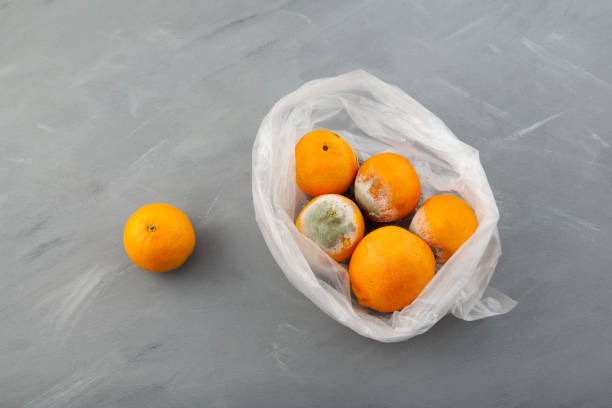

Creative Food Storage Hacks for Maximum Freshness
Tips for Storing Perishable Produce
Properly storing perishables is important for extending their shelf life and preventing spoilage. Make sure to keep fruits and vegetables in the right conditions; for example, some items do best in the fridge, while others should be kept at room temperature, while some can be frozen. Utilizing airtight containers or vacuum sealing and labeling items with purchase dates can also help you keep track of what needs to be used first, reducing the likelihood of waste.
Counter
Fruits: Bananas, apples, avocados, tomatoes, and citrus fruits do well at room temperature until they ripen.
Potatoes: Should be kept in a cool, dark place, away from direct sunlight.
Onions and Garlic: These items should also be stored in a cool, dry area.
Fridge
Vegetables: Leafy greens, bell peppers, broccoli, carrots, and cucumbers stay fresh longer in the refrigerator.
Freezer
Fruits: Berries, bananas, and mangoes freeze well and can be used later for smoothies or baking.
Vegetables: Most vegetables can be blanched and frozen to preserve their nutrients and flavor.
FIFO
First In, First Out, or FIFO, is a storage method that ensures older food items are used before newer ones. You can effectively reduce spoilage and waste by organizing your pantry and fridge so that the items purchased first are at the front. This practice, along with labeling, helps keep your food fresh and promotes a more organized kitchen.
How to Properly Store to Reduce Spoilage
Start by keeping perishables like fruits and vegetables in appropriate environments, such as the fridge or counter, depending on their needs. Additionally, using airtight containers, separating items that produce ethylene gas (like apples) from others, and regularly checking expiration dates can help minimize waste and maintain food quality.
Zero-Waste Cooking Tips
Creative Ways to Use Leftovers and Incorporate Food Scraps
For example, you can transform stale bread into croutons for Ceasar Salad or soups, while vegetable scraps can be simmered to make a flavorful broth. Additionally, incorporating leftover ingredients into new dishes—like adding leftover seafood to salads or stir-fries—ensures that nothing goes to waste while keeping your meals exciting.

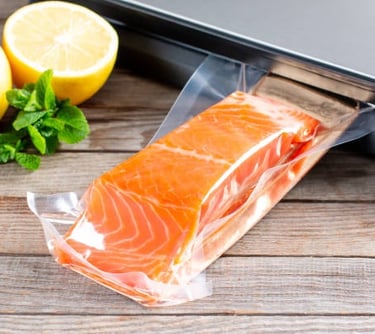
The Benefits of Composting
Don’t toss those scraps! Composting offers numerous environmental benefits by turning food scraps and yard waste into nutrient-rich soil. This process reduces the amount of organic waste sent to landfills and minimizes greenhouse gas emissions associated with decomposition. Additionally, compost enriches garden soil, improves its structure, and supports healthy plant growth, making it a sustainable choice for your garden and the planet.


Innovative Gadgets and Tools for a Waste-Free Kitchen
Gadgets and Appliances Designed to Reduce Food Waste
Vacuum Sealers help extend the shelf life of perishable items by removing air and preventing spoilage.
Smart Refrigerators equipped with inventory tracking can alert you when items are nearing their expiration dates, making it easier to use them before they go bad.




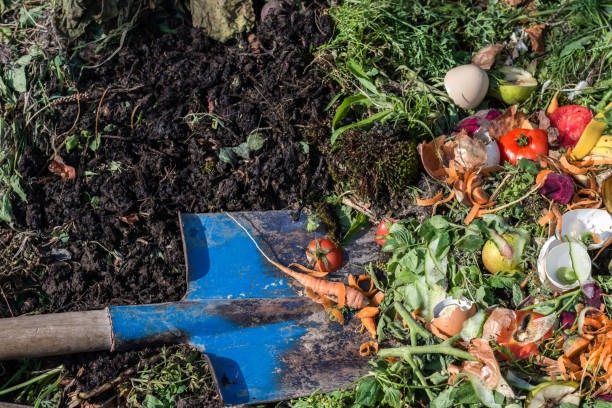


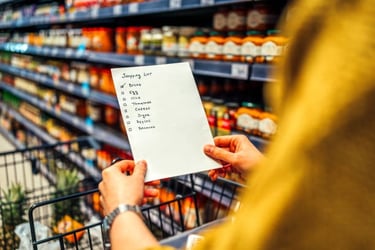






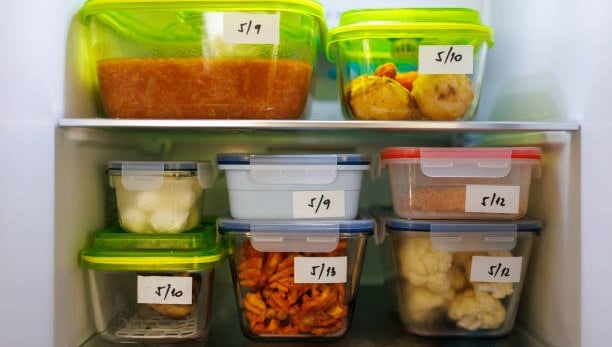

How to Track Expiration Dates
One effective method is to label containers and packages with the purchase or expiration date using a simple marker or tape. Additionally, utilizing apps or a dedicated calendar to track what you have and when it needs to be used can help you stay organized and avoid letting items go to waste.


How Reducing Food Waste Saves Money and Helps the Planet
How Much the Average Household Can Save
The average household can save significantly by reducing food waste, with estimates suggesting savings of up to $1,500 annually. (1) Families can make the most of their grocery budget by implementing strategies like meal planning, smart shopping, and proper food storage. Not only does this financial benefit add up, but it also contributes to a more sustainable lifestyle and a healthier planet.


Bottom Line
Small Changes in the Kitchen to Broader Environmental Benefits
Simple actions like reducing food waste, composting, and using energy-efficient appliances help conserve resources and reduce the carbon footprint. These collective efforts contribute to a healthier planet, demonstrating that even minor adjustments in our daily routines can impact sustainability.
© 2025 Salo Content Writing LLC, all rights reserved
Join the Movement for a Healthier Planet! 🌿
Subscribe now and get your FREE Sustainable Living Checklist! Plus, enjoy weekly articles and delicious plant-based recipes straight to your inbox. Let’s make sustainable living simple and inspiring, one email at a time! 💚✨


